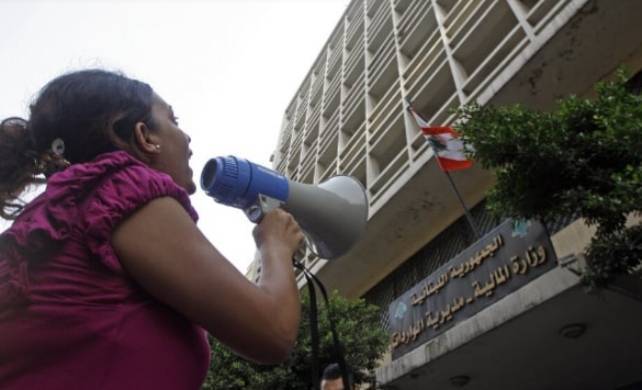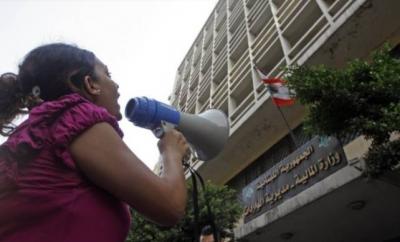Amid the stifling stagnation that dominates the internal scene due to the ongoing dysfunction of constitutional institutions, and the prioritization of populist political squabbling over vital issues concerning citizens, such as the electricity file, the new official exchange rate for the dollar at 15,000 Lira is set to begin next month. This comes after the implementation of new tax measures approved by the Ministry of Finance, alongside those included in the General Budget Law, while the dollar continues to soar in the black market, causing prices of goods and food items to reach exorbitant levels. All of this occurs in a context where authorities are absent from all forms of oversight and follow-up.
In this clouded atmosphere, the International Monetary Fund (IMF) recently released a report on the technical assistance provided at the request of the caretaker Deputy Prime Minister Saadeh Al-Shami last September regarding how to assist the government in reviewing the required tax policy for Lebanon, titled "Realigning the Tax Policy." The technical mission had several meetings over about ten days with the relevant authorities, as well as with the private sector and the World Bank, and concluded with an assessment of the situation leading to a package of immediate measures for the short and medium term, extending until 2025.
The IMF reveals that tax revenues fell to less than half between 2019 and 2021 due to what it described as the deepest economic crisis since the end of the civil war. It sees that if active tax measures are not taken now, revenue decline is likely to continue until 2023, leading to severe implications, then the deterioration of public institutions, undermining the tax system, and exacerbating inequality and distortions.
The IMF outlines tax policy reform options to stop the revenue bleed both now and in the near term and transition to a more efficient, effective, and inclusive tax system in the medium term. It underscores the importance of adopting a comprehensive vision for the tax system instead of the fragmented approach based on uncoordinated measures. It also calls for assessing the impact of the recommended measures on the most vulnerable groups and adopting compensatory spending measures as needed, which may include expanding the emergency social safety net.
Among the immediate recommendations, the IMF proposes a package of measures regarding value-added tax (VAT), consumption taxes, and income taxes, including using the market exchange rate uniformly across the entire tax system, the possibility of using the Sayrafa platform rate during the transition, restoring the real value of the VAT threshold to around $75,000, and adopting an automatic linkage to inflation when establishing the threshold and other VAT rules on the current nominal tax base.
For consumption taxes, it proposes restoring them to their real value as before the crisis, adopting a system that automatically links the taxes to an index including the tax bracket ranges, and establishing a system that links fuel consumption taxes to an index. As for income taxes, the IMF suggests adjusting them to inflation, enabling the administration to access relevant banking information and starting to receive information within the global forum on the holdings of Lebanese residents for tax purposes, and introducing capital gains from shares in companies into the taxable base. It proposes the cancellation of profit distribution exemptions for individuals from companies, limiting the exemption to one primary residence, eliminating the preferential treatment for export revenues, and removing low corporate income tax rates granted for reinvested profits without applying retroactive effects.
Regarding property taxes, the IMF suggests using the market exchange rate in all real estate transactions evaluated in dollars or other foreign currencies, abolishing the automatic exemption from property tax granted to vacant properties, abolishing the preferential treatment for second properties, and expanding the scope of registration fees to include stock transfers that derive their value inherently from real estate directly or indirectly.
The measures in the short and medium term are equally stringent, introducing harsh reforms intended to stop the bleeding of state revenues; however, they are unlikely to find a path to implementation as they touch on fundamental corruption points that form the outlets of waste and wealth for beneficiaries. Moreover, sending these measures without a national safety net will likely leave significant negative repercussions for taxpayers.




